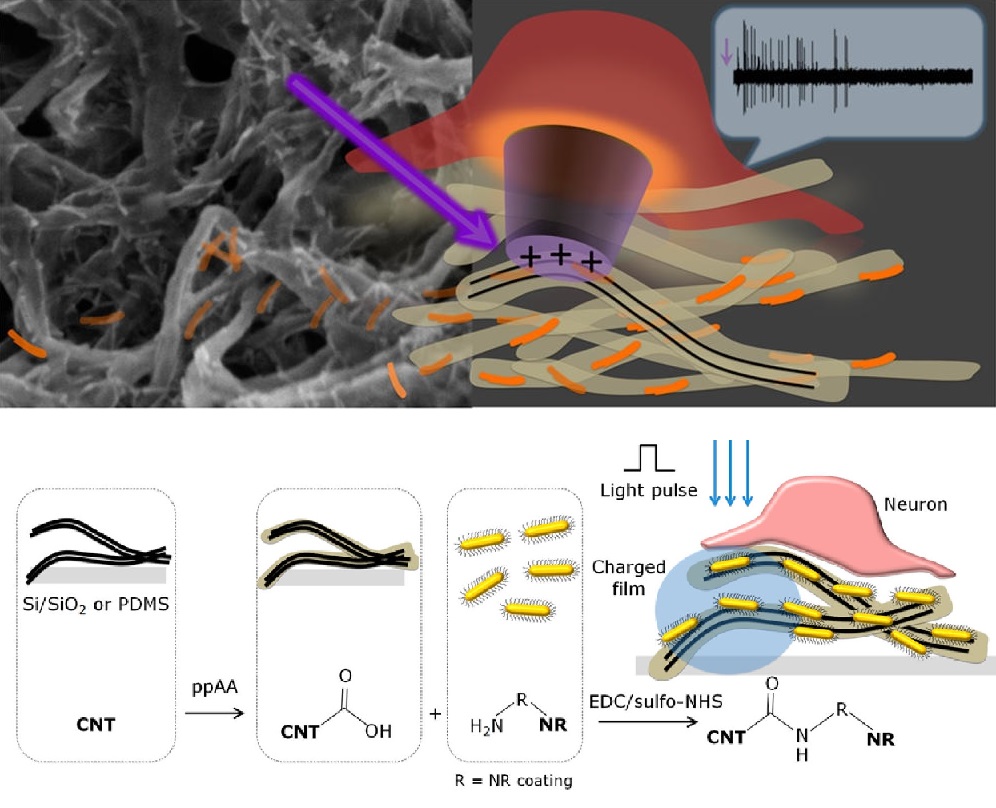Tel Aviv University, The Hebrew University of Jerusalem and Newcastle University researchers are developing an artificial retina that sends sensory signals to the brain to address vision loss. Several groups are attempting this, but have had issues with metallic parts, cumbersome wiring, or a low resolution outcome.
The TAU, HUJI and Newcastle team is working on a more efficient, higher resolution device. Semiconductor nanorods and carbon nanotubes were combined to create a wireless, light-sensitive, flexible film that could potentially act in the place of a damaged retina. When tested with a chick retina that normally doesn’t respond to light, the film absorbed light and sparked neuronal activity.
